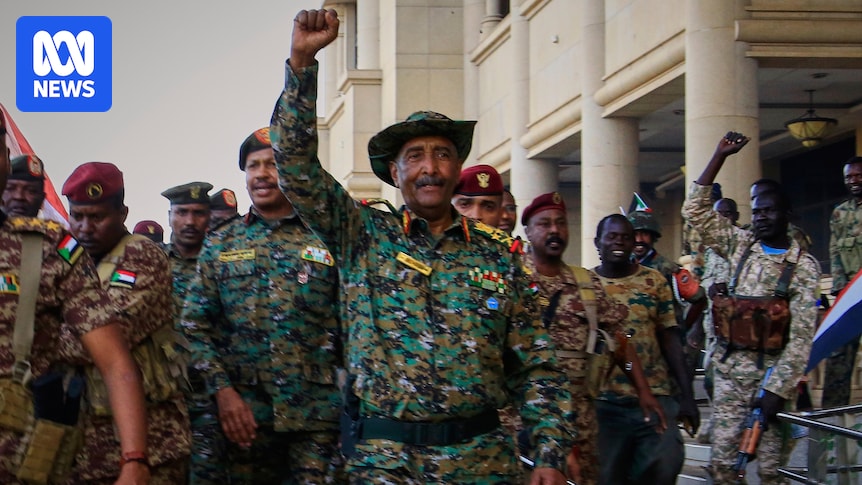
The latest chapter in Sudan’s civil war has captured the world’s attention as humanitarian groups and activists highlight signs of ethnic cleansing and humanitarian catastrophe that have been apparent for years. The recent capture of a major city in the country’s west has led to multiple reports of alleged crimes against humanity, with satellite images suggesting evidence of mass killings. This development prompts urgent questions: who is fighting whom, how did the situation deteriorate, and what are the implications for those caught in the crossfire?
Historical Context: A Nation in Turmoil
To understand the current crisis, it is essential to delve into Sudan’s tumultuous history. Sudan gained independence from British and Egyptian rule in 1956, only to endure multiple military coups and brutal dictatorships. The most significant of these began in 1989 when military leader Omar al-Bashir seized power, maintaining his grip on the nation for 30 years.
In 2003, al-Bashir’s government launched a violent crackdown on rebels in the Darfur region, enlisting the Janjaweed militia. The International Court of Justice (ICJ) later accused the Janjaweed and al-Bashir’s government of killing an estimated 300,000 people and displacing 2 million, primarily from the Fur, Masalit, and Zaghawa ethnic groups.
In the late 2000s, al-Bashir became the first sitting head of state to be charged with crimes against humanity and genocide.
The Rise of the Rapid Support Forces
In 2013, the Janjaweed restructured into a paramilitary group known as the Rapid Support Forces (RSF). Nationwide protests in 2019 eventually led to another coup, overthrowing al-Bashir and forming a transitional government aimed at democratic elections. However, by October 2021, the military, with RSF support, annulled the power-sharing deal, seizing full control of the country.
The RSF, led by General Mohamed Hamdan Dagalo, known as “Hemedti,” and the Sudanese Armed Forces, led by General Abdel Fattah al-Burhan, soon found themselves in a power struggle. This conflict escalated into a full-scale civil war, with fighting erupting in the capital, Khartoum, on April 15, 2023.
Humanitarian Crisis and Allegations of Genocide
The civil war’s toll is devastating. The United Nations reports that approximately 21 million people in Sudan face acute food insecurity, with 375,000 on the brink of starvation. More than 12 million people have been displaced, seeking refuge in neighboring countries like Ethiopia, Egypt, and Chad.
Estimates suggest over 150,000 people have died due to fighting, famine, and disease.
Abdullah Ali, a Sudanese expatriate in Sydney, shares a personal account of his family’s ordeal. His mother and siblings fled their homes in Kordofan, embarking on a perilous journey to Egypt. Ali’s mother passed away in Cairo, longing for her homeland.
“Her last words were ‘I don’t want to die here, I want to die back in my home,'” Ali recalls. “It’s painful — it’s very hard to think about.”
El-Fasher: A City Under Siege
On October 26, the RSF seized control of el-Fasher, the capital of Northern Darfur, after an 18-month siege. The city, once home to 900,000 people, now lies largely deserted. Reports of mass killings by RSF soldiers have emerged, with videos allegedly showing extrajudicial executions.
The Sudan Doctors Network reports 14,000 deaths from bombing, famine, and killings during the siege.
Satellite images analyzed by the Yale Humanitarian Research Lab reveal clusters of objects resembling human bodies, potentially indicating mass graves. The World Health Organization reported a massacre of 460 people at the Saudi Maternity Hospital, corroborated by images verified by the Associated Press.
Potential for Genocide and Calls for Peace
Bakry Elmedni, a Sudanese analyst and Associate Professor at Long Island University Brooklyn, warns of the situation’s gravity. “It’s nothing less than crimes against humanity and could be on its way to becoming a genocide,” he says. The RSF’s control over Darfur raises questions about their intentions, whether to establish a new country or press further into central Sudan.
A humanitarian truce, brokered by the US, UAE, Egypt, and Saudi Arabia, offers a glimmer of hope. The RSF has agreed to the truce, aiming to address Sudan’s dire humanitarian situation. However, the Sudanese Armed Forces have yet to respond.
Elmedni emphasizes the urgency of achieving peace. “I’m afraid that if we fail to get peace, we might soon be talking about millions dead, with no one to even say how many were killed,” he cautions.
As the world watches, the stakes in Sudan’s crisis have never been higher. The international community’s response will be crucial in determining whether the nation can find a path to peace or spiral further into chaos.





